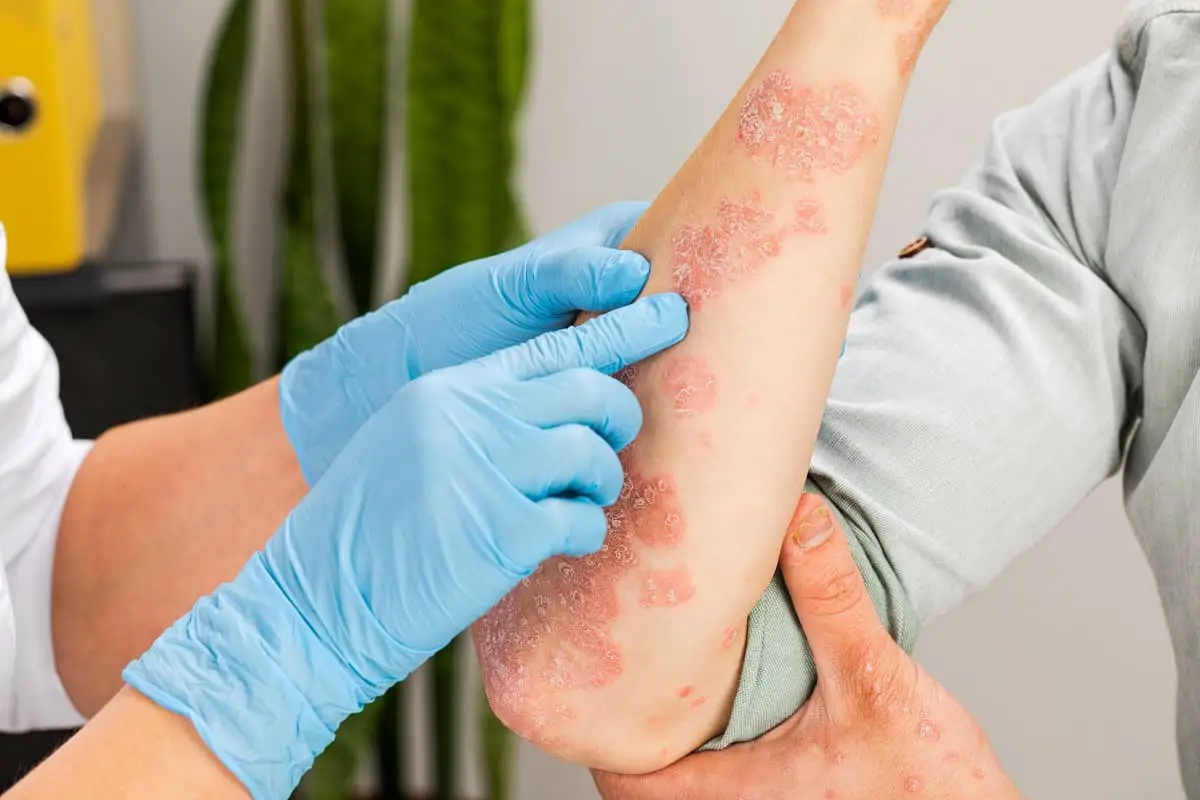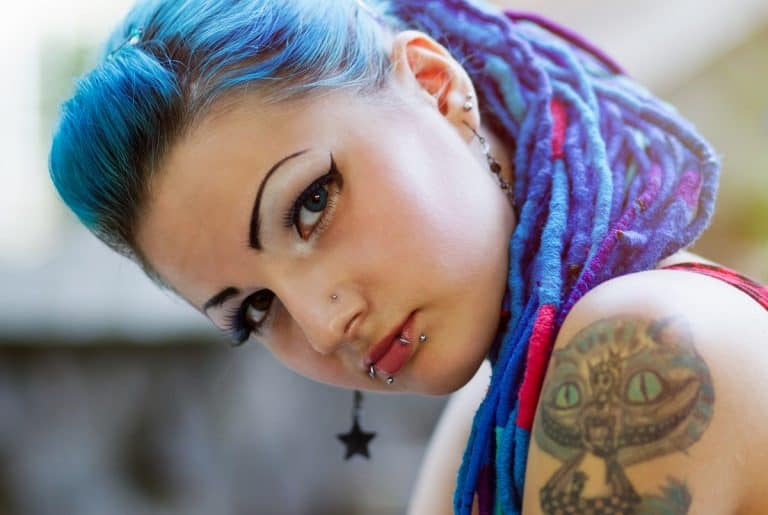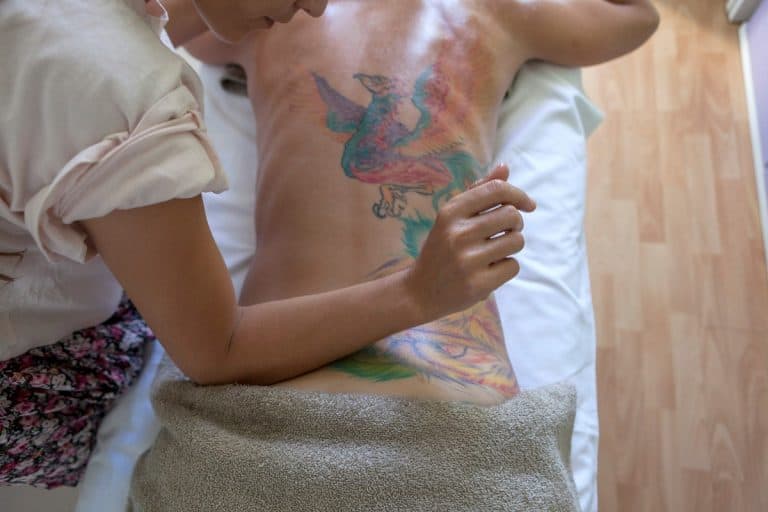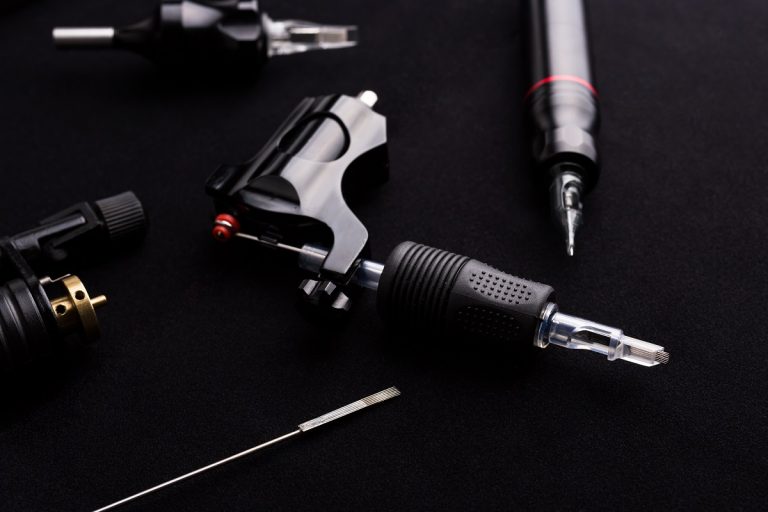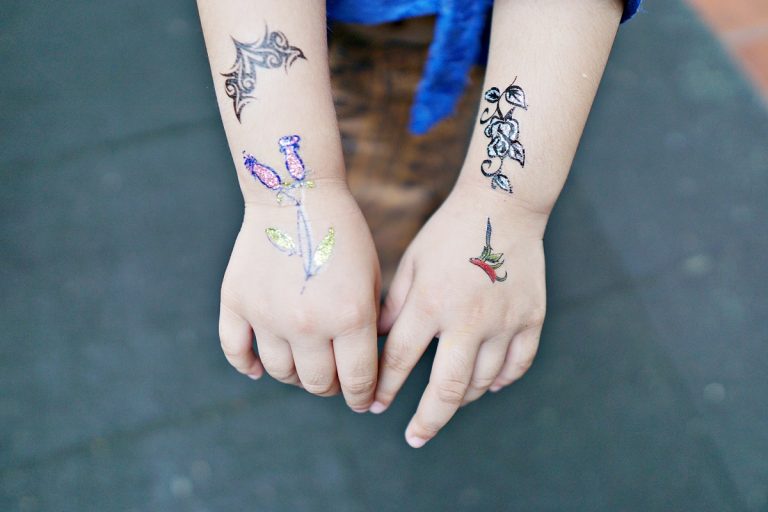Can You Get a Tattoo If You Have Eczema? Is It a Bad Idea?
Seeing everybody get a tattoo has probably made you think you want one too. It is obvious that the idea of everyone getting a tattoo has made us feel that tattoos are safe for everyone. And, while for the majority of people out there this stands true, there are still people who might be under the wrong impression, especially if they’re dealing with a health-related condition that could be affected or aggravated.
For example, people with skin conditions, like eczema, may encounter some issues when getting a tattoo. There are numerous concerns when it comes to tattoos and eczema that simply need to be addressed before one decides to go under the tattoo needle.
In the following paragraphs, we’ll talk about tattoos and eczema, and why it might not be safe for people with skin conditions to get tattooed. Hopefully, this will help all of you out there dealing with eczema get quality information before making a final decision.
Get a Tattoo If You Have Eczema: Is It a Bad Idea?
What Is an Eczema?
Atopic eczema, also known as atopic dermatitis, is a common skin condition where a skin area becomes red, dry, itchy, and cracked. It is considered long-lasting, or chronic and tends to flare up from time to time. Anybody can get eczema, but it is predominant in children; children can get eczema as early as the age of 5 which often persists into adolescence and adulthood. Eczema is often accompanied by hay fever or asthma, as well as overall skin sensitivity.
Unfortunately, eczema can cause a significant level of discomfort, especially if it’s super itchy. In some cases, people report their eczema affecting their sleep and general daily activities. Eczema tends to run in families, so if a parent has eczema, chances are the child will also develop similar skin issues.
Risks of Getting Tattoos With Eczema
Because eczema causes the skin to be super sensitive (not just the eczema skin areas, but skin in general), and it’s accompanied by significant skin changes (redness, bumps, thickened, cracked, or scaly skin, raised, leaking crusts, etc.), it is fair to assume that tattooing would pose certain risks. So, let’s take a look at the risks one may encounter should they decide to get a tattoo with eczema;
- Potential skin infection – eczema is super annoying and itchy; combined with a tattoo, which would also get itchy as it starts healing, scratching is simply inevitable. By scratching the tattoo, you can introduce bacteria and dirt to it and potentially cause a serious skin infection.
- Eczema flare-up – getting tattooed means your skin will be poked up to 3000 times per minute, which in the end creates a wound. This process can agitate the already sensitive skin, causing eczema to flare up. As a result, one will have to deal with increased itching, redness, and overall inflammation of the skin, which can quickly turn into a greater issue, like a skin infection.
- Skin pigmentation issues – hypo-or hyperpigmentation can occur if one tattoos eczema skin, especially if the purpose of the tattoo is to cover up eczema.
- Keloid formation – Keloid is a thick, raised scar that occurs as a result of skin injury, especially if the skin is sensitive. Eczema and tattooing create the perfect storm for keloid formation. Keloid scars continue to grow for months or years even after the skin is healed, and they do not disappear without treatment. They can also grow within the tattoo, and continue to grow and spread across it.
- Other tattoo-related risks – allergic reaction to tattoo ink is something people should be aware of before getting a tattoo, regardless of their potential skin condition or not. It is rare, but if it does happen, it has similar symptoms to a tattoo infection; raised skin, leaking of the tattoo (ink, blood, plasma), redness, pain, discomfort, itching, etc. There is also the risk of the tattoo healing improperly, which can leave scarring and permanent skin damage or even discoloration.
Do People With Eczema Get Tattoos?
Yes, a lot of people who have eczema get tattoos. They usually get tattoos to feel more expressive and self-confident. Dealing with eczema can affect one’s mental health and the image they have of themselves. Tattoos and body art can help people deal with their eczema and skin conditions more efficiently.
However, this may not be a good idea after all. In the following paragraphs, we’ll cover in detail all the reasons why people with eczema should NOT be getting tattoos. We do acknowledge the fact that tattoos can make people feel more confident about themselves, but in some cases, the risks are simply too high.
So, Should You Get a Tattoo If You Have Eczema?
Having a skin condition, like atopic dermatitis, is a clear indication that getting a tattoo is not a good idea. Considering all the aforementioned risks, it just seems counter-intuitive to further damage your already sensitive/damaged skin; nothing good can come out of that. It is common for tattoo artists to refuse to do a tattoo if they notice a client has eczema or experiences an eczema flare-up.
One of the arguments tattooists provide for saying ‘no’ to a client is that eczema often indicates a further issue with one’s immune system and immune response. An eczema flare-up especially indicates an ongoing inflammation in the skin as a whole, which can create a lot of potential issues during and after tattooing.
Despite the eczema flare-ups often being localized, the ink from the tattoo and the overall ‘stress’ your body goes through during the tattooing procedure can still affect the entire body and the skin as a whole. This can simply worsen the state of your eczema, cause further irritation and aggravate eczema via allergens and irritants from the ink.
According to doctors’ opinions, one should not get a tattoo if they have eczema in case;
- One is taking isotretinoin (Accutane) – it prolongs the healing time
- One has a history of skin lesions related to eczema, psoriasis, or other skin conditions like vitiligo, discoid lupus, and lichen planus
- One has a bleeding disorder or is receiving anticoagulation therapy
- One has a history of keloid scar formation (which could potentially form within the tattoo)
- One didn’t receive hepatitis B immunization
- One has experienced a serious topical allergy reaction
There are a lot of things one needs to take into consideration before getting a tattoo, especially if one is dealing with eczema. The aforementioned risks, associated with skin conditions, can simply increase the risk of infections and other adverse reactions. Chronic inflammations can easily occur, or bacterial contaminants can become difficult to treat, and one can encounter both issues as a result of tattooing highly sensitive skin.
Another issue is that, even if you do get a tattoo, your eczema can flare up so much that it destroys your tattoos, prevents them from properly healing, and in the process, destroys the tattoo design. Of course, people can get rid of unwanted tattoos via laser removal procedures. However, these procedures would be out of the question in case of atopic dermatitis. In some cases, the only way to deal with such an unwanted situation is to surgically excise the tattoo.
How Do I Care for My Skin If I Do Get a Tattoo?
If you do decide to get a tattoo, despite all the risks related to eczema or other skin condition, here’s what you can do to treat flare-ups and other potential skin reactions;
- Use hydrocortisone creams to alleviate itching; you cannot apply creams in the first few days of the tattoo healing process. The tattoo needs to close up and start drying before you can apply ointments, so beware of that. If the flare-up is elsewhere on the skin, you can apply the ointment regularly.
- Use oatmeal-based skin products. For example, buy oatmeal-based body shampoos or lotions. Oatmeal is great against inflammation and itching, so these products could help you deal with both issues without being too aggressive and localized in treatment.
- If you’ve been prescribed an eczema ointment/cream, continue to use it. It will help keep the flare-up under control, as well as relieve inflammation, redness, and itching. Again, if eczema flares up in the tattoo area, do not apply the ointment during the first 48 hours. As we mentioned, the tattoo needs to close and start drying up before you can apply any ointment or lotion.
If your skin starts to swell, get increasingly red and itchy, or if you see a discharge from the tattoo (days into the aftercare), then you should see a doctor. Chances are you may be experiencing a tattoo infection, an allergic reaction, or a skin reaction in relation to your eczema/skin condition. If you experience a fever and chills, you should see a doctor as soon as possible.
Final Thoughts
Despite some people getting tattoos even with eczema, we would like to emphasize the dangers and risks this could pose for one’s health. If you really want to get tattoos, we strongly recommend you talk to your family doctor or a dermatologist. Both can provide a first-hand examination and advice regarding your tattooing options. We definitely do not recommend our readers who have eczema or other skin conditions to simply go and get tattooed. The risks of this are pretty significant and can affect one’s health quite seriously.
- Safe, non-toxic plant-based temporary tattoos made with 100% high-definition printing for a realistic look without the pain
- Easy to apply and remove - just stick for 20 seconds then take off
- Set includes 5 sheets with 17 fun, delicate designs like hearts, cats, smiles, suns, moons, and more
- Waterproof and long-lasting - stays on up to 2 weeks of wear
- Fashionable for women, men, girls and boys
- Place on arm, wrist, neck, leg, finger, waist, foot and more
- Great for parties, birthdays, and showing your unique style

